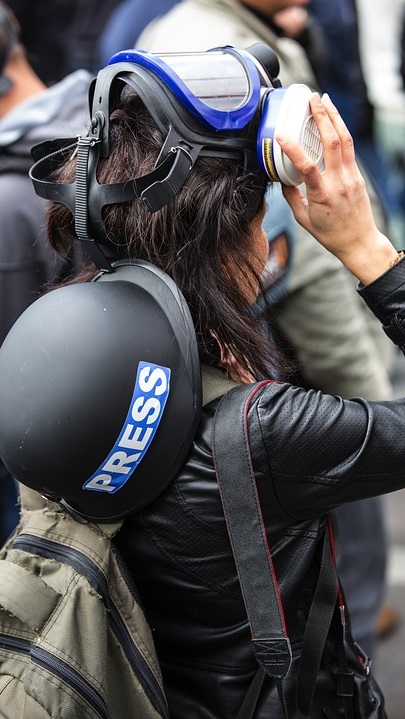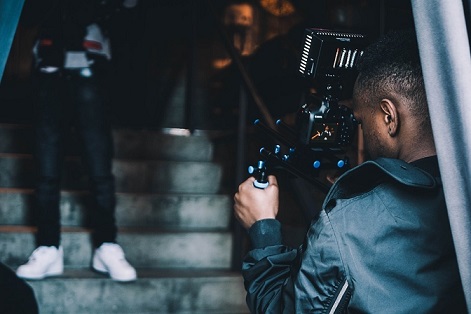– Media, truth and diplomacy –
The North American intelligence services argue that Wikileaks is a threat to US security. Several right-wing political figures have asked time and again that Julian Assange be treated as a terrorist.
 Fidel Narváez
Fidel Narváez
This is due to the magnitude and the gravity of the documentation circulated by Wikileaks about the United States which is, by far, the greatest leak of compromising information in history.
In fact, it is worth highlighting some of them. For example, the publication of the 2007 manual “Standard Operating Procedures – SOP” for the American soldiers in the prisoners’ camp in Guantanamo. In this material a series of practices violating human rights is described, which human rights organisations have demanded to know for many years.
On the other hand, the disclosure of “Collateral Murder” in April 2010 is perhaps the most damaging revelation by Wikileaks.
It is about the well-known video filmed from an American Apache helicopter in Iraq, in which 15 civilians including two Reuters journalists, are riddled by gunfire from the air. In the images, one sees how shots are fired from the helicopter despite the fact that none of the victims (some of them killed while trying to help the injured) had threatened the soldiers. In the video, you can hear the crew laughing and boasting about the crime.
Similarly, there is the publication of the so-called “Newspaper of the Afghan war”, a compilation of more than 90,000 documents on the war in Afghanistan which beforehand were not available to the public.
These documents revealed that deaths of innocent civilians in the hands of international forces were covered up. These events, which can be counted in their hundreds, range from “shootings of innocent individuals to massive losses of lives in airstrikes”.
Lastly, we can mention the almost 400,000 documents which, in October 2010, came to light over the war in Iraq, known as the “Iraq War Logs”.
The “war papers” showed proof that the North American soldiers always knew about the practice of torture and that there would have been more than 109,000 violent deaths between 2004 and 2009, including 66,081 civilians.
Imperial diplomacy uncovered
With the revelations about the biggest contemporary wars, Wikileaks won such prestige that by November 2010, it announced what is known as “Cablegate” – the publication of confidential cables from American diplomats.
 “Cablegate” includes around 250,000 documents sent from 274 Consulates, Embassies and US diplomatic missions around the world, between 1966 and February 2010, to the State Department. These documents range from the category “not classified” to “confidential” and “secret”. Not included amongst these, however, is the highest category, “top secret”.
“Cablegate” includes around 250,000 documents sent from 274 Consulates, Embassies and US diplomatic missions around the world, between 1966 and February 2010, to the State Department. These documents range from the category “not classified” to “confidential” and “secret”. Not included amongst these, however, is the highest category, “top secret”.
In February 2010, the cables came to light in a co-ordinated and unedited manner by way of the New York Times, Le Monde of France, Der Spiegel of Germany, The Guardian of England and the newspaper El País of Spain.
This is a strategy used by Wikileaks, on one hand to maximise the impact of the revelations and on the other, to legitimise their action. If publishing confidential information is a crime, would the most prestigious newspapers of the world risk doing it?
The truth is they did and they found reasons for doing so, the like of which Le Monde explained, “Since this substantial information was transmitted by Wikileaks, albeit illegally and, therefore, it could have fallen into the public domain at anytime, Le Monde has judged pertinent its mission to study these documents, carry out a journalistic analysis and put them at the disposition of our readers”.
For their part, Der Spiegel, agreed, “Through the course of the investigation, the reporters and editors of Der Spiegel have given more weight to public interest against the justified interest of the countries in matters of security and confidentiality […] Now it is possible to look at the development of many political events through the lens of those who participated in those affairs, thereby our understanding of the same is deeply enriched. That alone is often enough to determine transparency over national regulations on confidentiality”.
The White House, for its part, published a statement before the storm, “By the same token, the field report to Washington is candid information and many times incomplete. It is not the expression of a policy as such, nor does it always define final political decisions. However, these cables can compromise private discussions with foreign governments and leaders of the opposition, and when the substance of private conversations is printed on the front pages of newspapers around the world, it can deeply impact on not only the interests of the North American political exterior, but also that of our allies and friends around the world”.
We are in a period of real demystification of diplomacy, which professor Michael Cox, member of British think tank Chatham House describes as, “A big treasure for historians and students of international relations. A sign that we are in the information Age and that it is very difficult to keep anything secret”.
Wikileaks benefited from agreements with around 70 written communication media worldwide which were gradually publishing the cables. However, in September 2011, the organisation took the decision to post all the material online, as they explain, due to the fact that an English journalist irresponsibly revealed confidential codes in a publication which, as previously agreed, Wikileaks had assigned to him in order to access the cables.
The quantity of material (now freely accessible) is such that there are those who believe that the real impact of Cablegate will take a few years to fully come to light.
However, the little which has been analysed already has resulted in diverse reactions, both from governments and from public opinion in general.
The furious condemnations made by the United States establishment and its allies in the West against the publications are fairly well-known, not so well-known are the responses of support from other sectors, more than just backing-up Wikileaks and as such, they are a rejection of what the cables reveal.
For example, the newspaper The Nation of Pakistan, in its editorial expressed the opinion that, “Wikileaks has offered an invaluable service in exposing North American hypocrisy” and the editor of the South Korean newspaper Hankyoreh said, “Wikileaks has lifted the lid off a scandalous hidden side of the country that claims to be the bastion of free democracy.”
 For its part, the Lebanese newspaper al-Safir wrote in its pages, “[The leaks] just give us a vivid, spontaneous and honest impression of the USA’s sense of it’s superiority over all others. The mask worn by the North American diplomats in their speeches is removed, being unveiled in the instant they begin to write the report to their superiors”.
For its part, the Lebanese newspaper al-Safir wrote in its pages, “[The leaks] just give us a vivid, spontaneous and honest impression of the USA’s sense of it’s superiority over all others. The mask worn by the North American diplomats in their speeches is removed, being unveiled in the instant they begin to write the report to their superiors”.
The truth is, and on this there is general agreement, that the documents revealed by Wikileaks do not in themselves contain much that is new, as they are the painful confirmation of what was well-known before, essentially three things: the practices of violating human rights in the wars involving the USA, the lobbying by North American diplomacy to smooth the way for its transnational companies and defend them at all costs, and the unrestricted support given to questionable regimes of whose ethical inadequacy it is fully aware.
Regarding the first point, despite the fact that globalisation of communications brings us ever closer to diverse regions of the world, contemporary society has become more insensitive to remote conflicts and we realise, with lesser astonishment, the way in which countries are invaded in the name of freedom and human rights, trampling over those same freedoms and those same rights.
With respect to the second point, it could be said that when all is said and done, diplomats are there to take care of the interests of their country, so they might do well to apply in their defence, that phrase attributed to the 17th century English diplomat, Sir Henry Wotton when he said, “an ambassador is essentially an honest man sent overseas to lie for the sake of his country.”
It is the third point, however, which in practical terms has caused the greatest effect of the Wikileaks revelations, since these represent an embarrassment not only for the diplomats with a superiority complex – witnessed when they report from the “humble” countries which in their opinion, so need “to learn” of from the superpower – but also for ordinary citizens, who see with indignation how oppressive and corrupt regimes receive support from the West.
The archetypal example that proves this point is that of Tunisia, which ignited the Arab uprising, and which the magazine, Foreign Policy calls, “The first Wikileaks revolution”.
The people of Tunisia did not need the North American diplomats to tell them how corrupt their ruler was, however, the Wikileaks cables had a determining impact and were the catalyst of the revolt.
The details of the cables allowed them to deduce that the disintegration of the regime was obvious not only at home, and that this was reason for its country’s shame at international level, but more still when the cynicism with which the North American Embassy reported to Washington was revealed, “Ben Ali has lost all notion of what is happening to his people […]”, and after giving a thousand reasons for sustaining the corruption and the brutality of the regime, it was recommended that “we should abstain from public criticism[…]”while replacing it with “complete honesty at the highest level.”
The disclosure of the guidelines – attributed to the highest authority of North American diplomacy – to gather personal information (read to spy) on the representatives of the UN Security Council including its General Secretary, Ban Ki-moon, do not exactly support their claim for “candid” or transparent relationships.
In the National Human Intelligence Collection Directive the Secretary of State, Hillary Clinton, instructs the United Nations diplomats in New York, Vienna and Rome, as well as those from 33 Embassies and Consulates including London, Paris and Moscow, to obtain personal data on key United Nations officials, including main advisors and support personnel.
The data gathered ranges from technical details on the communication systems used, including the passwords of private and commercial networks for official communications, through to credit card numbers, email addresses, telephone, fax, pager, frequent traveller numbers and biographical and biometric information which includes DNA, digital fingerprints etc. (Next week: The Wikileaks Saga (III): Ecuador and the ‘leaks'”)













.jpg)












